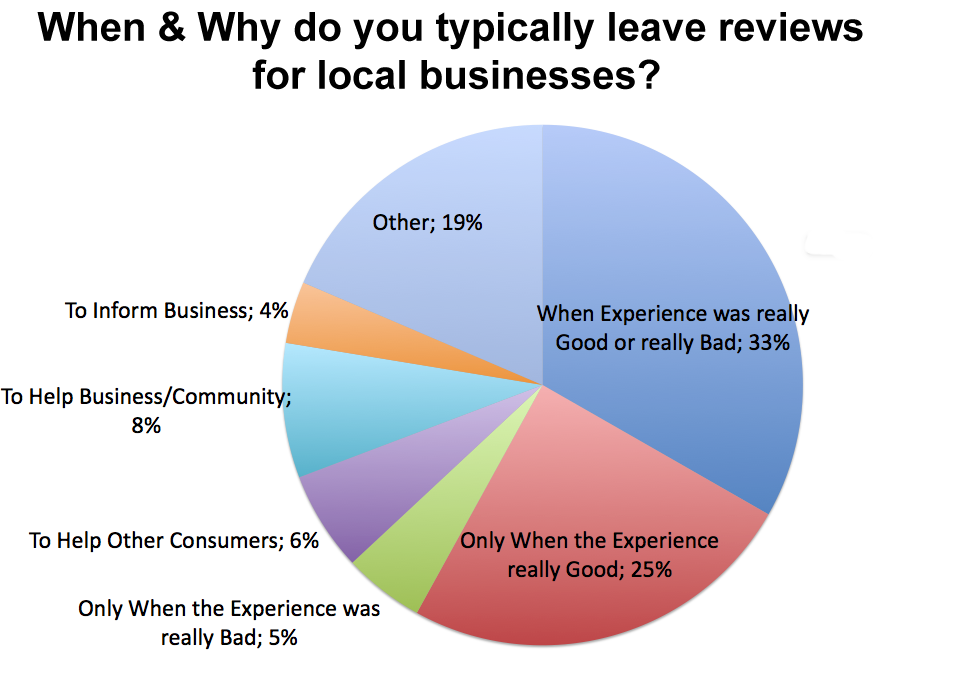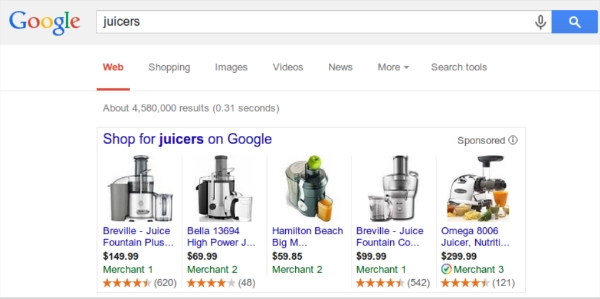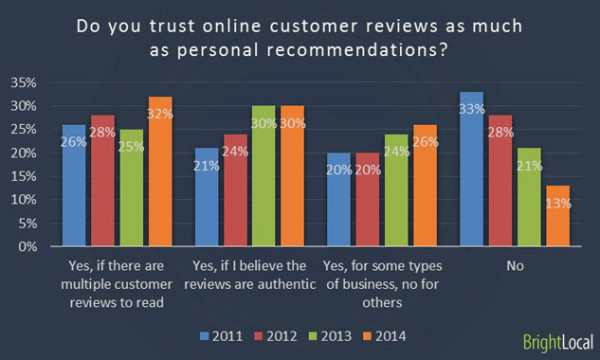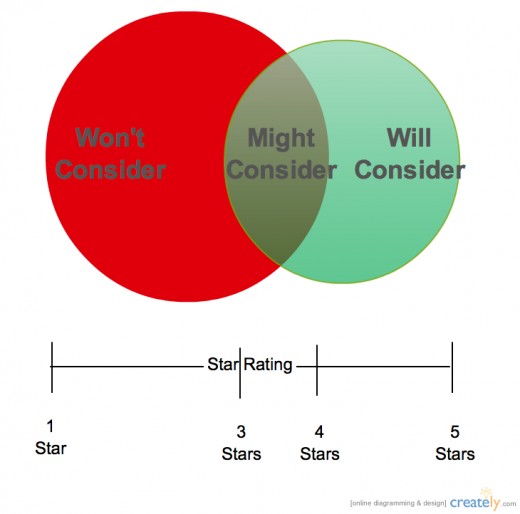 Any business owner who has ever received online reviews – whether they were negative or positive – can tell you the power online reviews have in influencing how others perceive your brand. All it can take is one glowing or irate review on a popular service such as Google or Yelp to make or break your business.
Any business owner who has ever received online reviews – whether they were negative or positive – can tell you the power online reviews have in influencing how others perceive your brand. All it can take is one glowing or irate review on a popular service such as Google or Yelp to make or break your business.
Most business owners will also tell you the most likely person to leave a review is an angry customer, but a new survey from Mike Blumenthal published on GetFiveStars suggests those business owners may be wrong.
While it is true that extreme reactions are the most likely to result in reviews for your business, the evidence suggests consumers are actually more likely to reward excellent service than they are to attack businesses which provided a bad experience.
Blumenthal surveyed over 600 consumers that self-reported being active online reviews, asking when and why do you typically leave a review for a local business, and the findings show that few reviewers see calling out exceptionally bad service as their primary motivation.
In actuality, most reviewers actually see their reviews as a means to help inform the community, the business, and other consumers.

For the survey, Blumenthal and colleagues allowed the respondents to answer in their own words, which were then categorized into the following categories:
- When Experience was really Good or really Bad
- Only When the Experience really Good
- Only When the Experience was really Bad
- To Help Other Consumers
- To Help Business/Community
- To Inform Business
- Other
While the largest cohort of consumers was defined by extremes with a third of respondents only writing reviews based on really good or really bad experienced, the second largest group is entirely characterized by individuals who only use reviews to celebrate excellent service.
Importantly, this group was not much smaller than those who were motivated by extreme experiences on both ends of the spectrum, suggesting business owners are more likely to get positive reviews for good experiences than they are to receive poor reviews when they drop the ball.
To put this in context, 25% of active reviewers reported leaving reviews only when the experience was overwhelmingly positive, but 5% of reviews only leave reviews for truly poor experiences. That means the average reviewer isn’t the perpetually angry critic they are often portrayed as.
The truth is the vast amount of reviewers aren’t out to get anybody. They view themselves as integral parts to the current business ecosystem and an important part of society.
Ultimately, the reason online reviews may seem overwhelmingly negative is because it is simply much more difficult to provide exceptional service than it is to provide a terrible experience. That doesn’t mean it is impossible.
As a business owner, you should naturally be striving to provide the best service possible. If you are doing that, all you have to do to start drawing in scores of positive reviews is make it easy for your consumers to give you feedback and be sure to listen to their needs. If your customers feel like you are listening and responding to what they have to say, you should expect to see great reviews flooding in within no time.
Read the full report from GetFiveStars here.






